Eric-Clifford Graf (PhD, Virginia, 1997) teaches and writes about the liberal tradition as authored by men like Alexander Hamilton, Frederick Douglass, and Jorge Luis Borges. His latest book is ANATOMY OF LIBERTY IN DON QUIJOTE DE LA MANCHA (Lexington, 2021). All of his work can be found here: ericcliffordgraf.academia.edu/research.
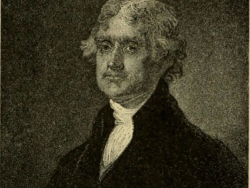
In my first essay on this topic, I surveyed the epistolary evidence for Jefferson’s subtle appreciation of Cervantes’s Don Quijote. In my second, I showed how, for his part, the inventor of the modern novel deployed the picaresque genre as a way to critically examine racism, slavery, tyranny, and monetary manipulation in late-Renaissance Spain. It’s […]
Read More
Did Thomas Jefferson ever meet England’s King George III? It would seem not. In 1786, he visited Buckingham House and stayed overnight. Yes, it was called a “house” in those days. As a gardener and a farmer, the American Founder appears to have wanted to see Buckinghamshire’s famous Stowe Gardens. But to leave his visit […]
Read More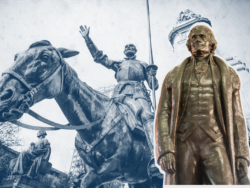
Jefferson’s geopolitical and diplomatic gestures, alongside his formal and personal correspondence, allow us to understand his essay on Cervantes. I refer to “Query VI” of Notes on the State of Virginia (1785). The meaning of this text remains invisible to those unfamiliar with the protocols of Don Quijote de la Mancha (DQ). Most readers expect Montesquieu’s […]
Read More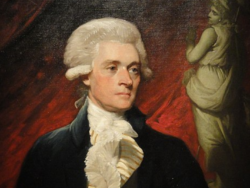
Americans think George Ticknor (1791–1871) was their nation’s first Hispanist. They’re wrong; and they overrate the intellect of the Harvard professor. Like his admirers, Ticknor had a linear and encyclopedic mind. We should be grateful—he collected and collated the major texts of the modern history of European literature. But his analysis was buggy, handicapped by […]
Read More
Super/Man: The Christopher Reeve Story appears in theaters on October 11. I have a confession to make, and I’ve often thought about writing it down. This seems like the appropriate time. Here goes. I think I might have killed Christopher Reeve. There, I feel better already. I should say that I meant to kill Superman […]
Read More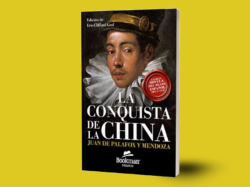
The Instituto Cervantes reported in 2015 that about 51 million native speakers of Spanish lived in the United States. Such statistics are always suspect. Some estimates put the current number at 57 million. Then, there are about 11 million Spanish-speaking students with varying abilities. Given the open-border policy of the Biden Administration, we can probably […]
Read More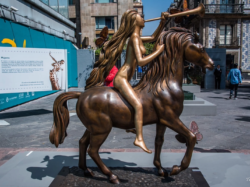
“Tú sola comprendiste que el hombre y el tigre se diferencian únicamente por el corazón.” —Horacio Quiroga, Juan Darién (1920) At an event at Stanford Law School last year, Associate Dean Tirien Steinbach shut down Federal Judge Kyle Duncan’s speech because his ideas hurt people’s feelings. More recently, officials in the United Kingdom have indicated […]
Read More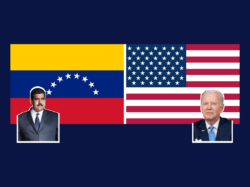
The West is in the midst of a crisis, not just a cultural one but a political one as well, and it is happening right now. Every patriot must ask himself a series of serious questions. Where are we headed? Where is the limit? When are we going to wake up? Are we willing to […]
Read More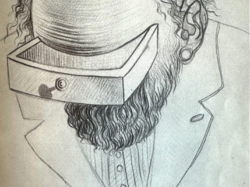
“Everything goes when anything goes all of the time.” —Paul Westerberg Alexis de Tocqueville noted in Democracy in America (1835/40) that upon the advent of written constitutions and electoral politics, the aristocracies of the Western world had to rediscover their purpose. He saw the United States as the most acute example of a society in […]
Read More
Editor’s Note: This is part II of “Social Dualism and the Problem of Archaic Inequality.”If you have not yet read part I, find it here. Undoubtedly, some individuals who inhabit the marginal regions between two national coalitions can learn to jump between their points of view. Most of us, however, remain isolated, as if on […]
Read More
Neither side of the aisle in the U.S. recognizes the other anymore. But this is more normal than we imagine. According to what political theorists call “realignment theory,” life gets bumpy in an electoral democracy, and it can change substantially and suddenly. But it’s deeper than that. Our current national malaise is a very common […]
Read More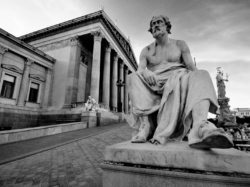
“You Americans, all you do is talk and talk, and say ‘let me tell you something’ and ‘I just wanna say.’ Well, you’re dead now, so shut up.” —Monty Python’s The Meaning of Life (1983) Twenty-five centuries ago, history’s greatest historian wrote his masterpiece. The Peloponnesian War—late fifth century BC—initiated the Western tradition of analyzing the […]
Read More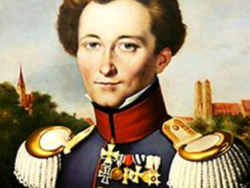
Idealistic, fanatical libertarians—the Mises types, Rothbardian and Randian—like to shout from the rooftop that “inflation is a monetary phenomenon.” But that’s mastery of the obvious. Maybe there are still some five-year-olds out there who imagine inflation to be the fault of merchants raising prices so as to screw their clients and, thus also the fault […]
Read More
Jeane Kirkpatrick was the American Ambassador to the United Nations during Ronald Reagan’s presidency. A brilliant and principled woman, she was famous for her pithy characterizations of the surreal, indecorous nature of politics at the UN. She once said, for example: “What takes place in the Security Council more closely resembles a mugging than either […]
Read More
You may not have noticed, but we live in revolutionary times and at a global level. A lab-created plague just killed millions of people, and now we’re witnessing the migration of millions more from third-world countries into Europe and the United States. Constitutional governance has drawn to a close in the only remaining superpower, where […]
Read More
A decade ago, I gave a talk on the Quiché-Mayan epic at the Popol Vuh Museum at Universidad Francisco Marroquín in Guatemala. It was flattering at first. The smallish auditorium was full. About 100 people. A lot for a topic in the humanities at a school devoted to law, business, economics, and dentistry. I spoke […]
Read More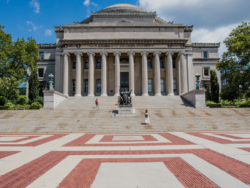
I recall an incident on a trading floor at a firm where I once worked. A young man—let’s call him William—got himself too long on the stock of Barclays as it crashed in concert with the collapse of Lehman Brothers on September 15, 2008. William was betting big that Barclays was oversold and that it […]
Read More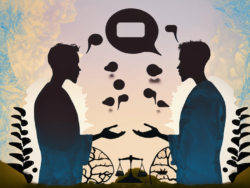
As with negative rights, there’s a lot of confusion regarding natural law. People use the term without much explanation of what it means, and those of us who are not trained lawyers or legal historians don’t want to reveal our ignorance by asking for clarifications. This is my attempt as a non-specialist to explain what […]
Read More
“For in politics, as in religion, it is equally absurd to aim at making proselytes by fire and sword. Heresies in either can rarely be cured by persecution.” —Alexander Hamilton, Federalist 1 All university-level students should read, study, and discuss The Federalist Papers (1787–88). This most sacred document of the American founding explains the logic […]
Read More
“To justify a general conclusion, requires many observations, even where the subject may be submitted to the Anatomical knife, to Optical glasses, to analysis by fire, or by solvents.” —Thomas Jefferson, Notes on the State of Virginia, Query XIV I’ll never forget a beautiful Peruvian girl, breathtaking she was, and a true friend, Ivy Arbulu. […]
Read More
Negative rights signal the core of natural law in the American tradition, also known as our Bill of Rights. Without them, the Constitution might never have been ratified, or we might be a very different country today. Most of us can list them—the right to free speech, the right to keep and bear arms, the […]
Read More
“Men learn in a negative rite to give up the best things they were born with, and forever.” —Norman Mailer, Armies of the Night (1968) William Shakespeare’s Hamlet (c.1599) and Tirso de Molina’s El burlador de Sevilla (1612?) are the most archetypal plays by any Spanish or English playwright from the early modern period, arguably […]
Read More
Author’s Note: Dedicated to Alicia Cerezo “Rara temporum felicitas ubi sentire quae velis et quae sentias dicere licet.” —Tacitus, Historiae, 1.1 “I don’t like belonging to another person’s dream.” —Lewis Carroll, Through the Looking-Glass, VIII There is a quick and easy way, I say, to introduce young readers to the political allegory of Lewis Carroll’s […]
Read More
I had a conversation about fifteen years ago with a colleague from Seville. We sat in a restaurant in Charlottesville, Virginia, as she expounded on the dangers of economic freedom and defended what seemed to me like the divinely ordained need for government regulation. I was perplexed. “That’s not my tradition and it’s not my […]
Read More
In stockjobber parlance, Argentina is “risk on.” By electing rising political star Javier Milei as President—he took office on December 10th—Argentina is the first modern nation to embrace the libertarian creed. We’ve not had such a determined political philosophy on the world stage since Goldwater—maybe Reagan. The runoff on November 19th wasn’t even close. The […]
Read More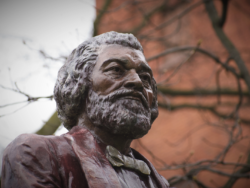
The accusation that the United States of America was “founded on slavery” is advanced to discredit the nation. Accordingly, if some people were oppressed at the time of the Founding, then somehow the entire American project is illegitimate to this day. Or, in another way, if some people who wrote or signed the Constitution also […]
Read More
Well, this is impertinent, but to build Monticello, That domed dream of our liberties floating High on its mountain, like a cloud, demanded A certain amount of black sweat. —Robert Penn Warren, Brother to Dragons (1979) Concessive ways to dismantle woke ideology exist that don’t require America to abandon her best ideas. This will not […]
Read More
There’s a lot of hand-wringing in Argentina regarding anti-Keynesian candidate Javier Milei’s expressed promise to dollarize the economy if he’s elected president. After a century of centralized industrial planning and oversized welfare programs, along with insane levels of money printing to pay for it all, Argentina went from one of the wealthiest nations on earth […]
Read More
“It is desirable, in short, that in things which do not primarily concern others, individuality should assert itself.” —John Stuart Mill, On Liberty (London, 1859) Jorge Luis Borges’s story “El Aleph” (1945) contemplates the struggle for personal liberty in Argentina, a subject he conjures more formally a year later in his essay “Nuestro pobre […]
Read More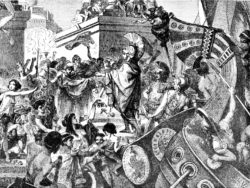
(For don Pedro Schwartz, a great economist and a true gentleman) For sociological, political, and economic reasons—family breakdown, information overload, technological innovation, chemical and behavioral addiction, etc.—skills-based learning, along with instruction in practical areas like science, math, engineering, music, nutrition, finance, logic, and personal psychology, makes more sense today than cultural, gender, or literary studies. […]
Read More